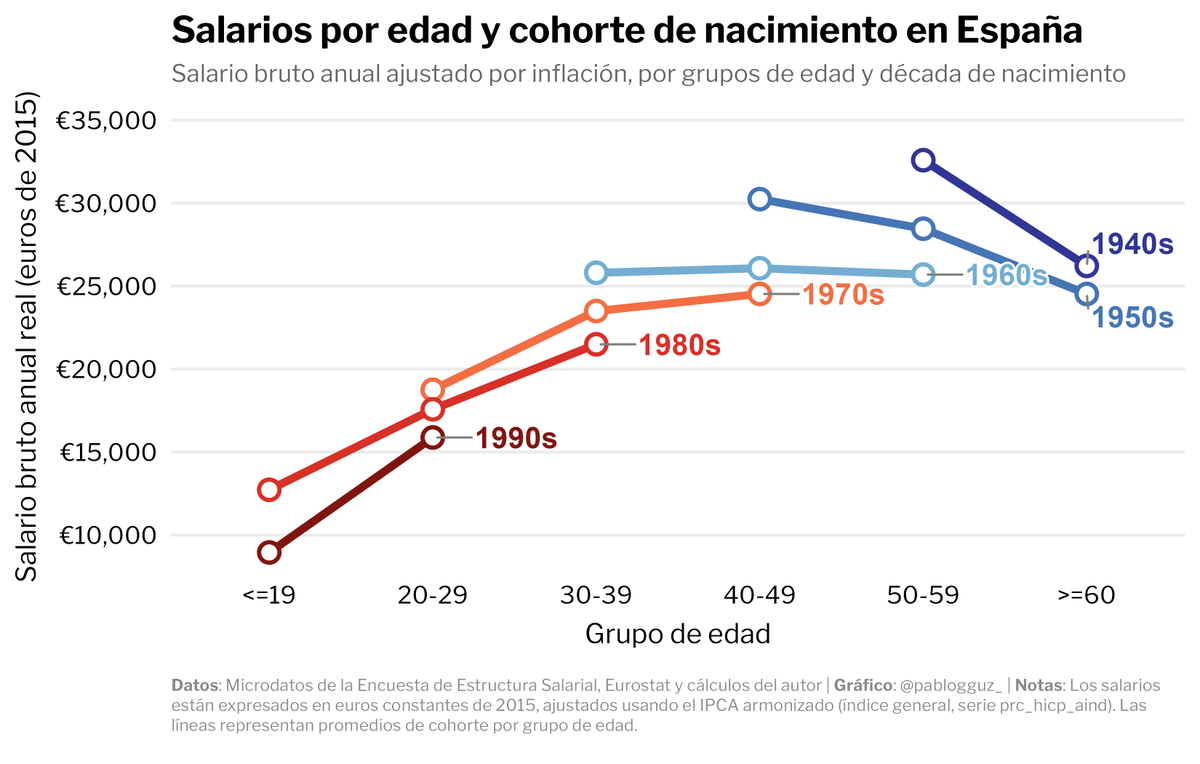
pablo
@pablogguz_
wherever the heart sings | economics at @EBRD
ID: 841783932
https://pablogguz.github.io/ 23-09-2012 14:17:15
962 Tweet
2,2K Followers
393 Following










siguiendo la sugerencia de Jon González: los salarios de las generaciones más jóvenes en españa son sistemáticamente menores en términos reales que los de las mayores a la misma edad los nacidos en los 60 cobraban de media un 20% más en la treintena que los nacidos en los 80


it was an absolute pleasure having Jesús Fernández-Villaverde with us at the ebrd. exceptional keynote on the kind of big questions that remind you why you got into economics in the first place gracias jesús!


hace unos días publiqué un gráfico sobre la evolución de los salarios por grupo de edad y cohortes de nacimiento en españa que tuvo bastante difusión. hoy Kiko Llaneras publica en el país un (fantástico) análisis en el que muestra un gráfico similar (elpais.com/espana/2025-06…),















